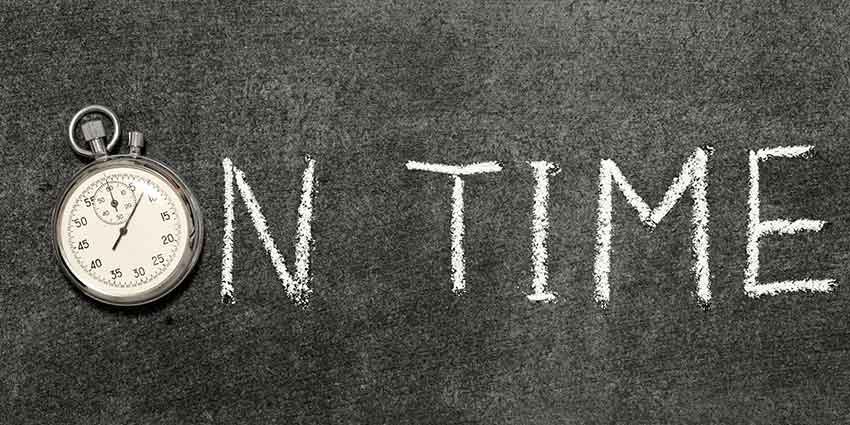Navigating the home loan process can be complex. Understanding the roles of the professionals involved is crucial. One such professional is the mortgage originator. They play a pivotal role in the initial stages of obtaining a home loan.
But what sets mortgage originators apart? How do they differ from loan officers, another key player in the mortgage industry? This guide will explore these questions. The special roles and value that mortgage originators add to the home loan process will be explained.
Understanding the Role of a Mortgage Originator
A mortgage banker serves as a crucial link in the home loan process. They help borrowers navigate the complexities of acquiring a mortgage.
Their primary role begins with assessing the financial status of potential borrowers. This involves gathering necessary documents and understanding their creditworthiness.
Mortgage brokers also work closely with underwriters and loan processors. They ensure that all paperwork is complete and accurate, facilitating a smooth process.
Here are the key responsibilities:
- Evaluating financial documents and credit history
- Advising clients on suitable loan products
- Coordinating with underwriters and other stakeholders
Their expertise in various loan products is a significant asset. This allows them to tailor the best loan options for each client.
Overall, mortgage originators play a pivotal role in guiding borrowers from pre-approval through to loan closing. They help ensure a seamless and informed mortgage journey.
Mortgage Originator vs. Loan Officer: Key Differences
At first glance, mortgage originators and loan officers might seem alike. However, they have distinct roles within the mortgage process.
Mortgage originators primarily focus on the initial stages of the loan process. They work on assessing and qualifying borrowers, paving the way for smooth transactions.
Loan officers, on the other hand, are more involved with the lender’s side. They specialize in the approval and documentation stages, ensuring compliance and adherence to lending standards.
Here are the key differences:
- Mortgage Originator: Initiates the loan process, assesses financial status, and suggests loan options.
- Loan Officer: Reviews applications, checks documentation, and complies with lending regulations.
A mortgage loan originator tends to have a broader scope of client interaction. They provide personalized advice and foster lasting client relationships.
Understanding these differences helps borrowers identify whom to approach at different stages of their mortgage journey. Choosing the right professional enhances their home-buying experience significantly.
The Unique Responsibilities of Mortgage Originators
Mortgage originators hold key responsibilities that set them apart in the mortgage industry. Their tasks are vital to successful loan transactions.
They assess the borrower’s financial situation, using this information to guide them towards suitable loan products. This initial step is crucial in setting realistic expectations for borrowers.
Mortgage originators also play a significant role in pre-approval. They gather necessary documents, verify financial data, and streamline the pre-approval process.
Here are some of their unique responsibilities:
- Assessing borrower’s credit and financial history.
- Advising on the best loan options available.
- Collaborating with underwriters and loan processors.
- Ensuring compliance with lending laws.
- Navigating complex financial situations to secure loan approval.
Moreover, mortgage originators offer personalized consultations. They explain intricate financial terms and aid borrowers in understanding loan implications.
Their expertise extends beyond initial stages. They often accompany clients through the entire loan process, ensuring a seamless experience. By doing so, they solidify trust and build lasting client relationships.
The Impact of Mortgage Originators on the Loan Approval Process
Mortgage originators are pivotal in the loan approval process. Their involvement significantly affects the outcome of a loan application.
One of their primary roles is preparing accurate, complete, and compelling loan applications. This ensures a smoother path through the approval stages.
They liaise with underwriters to address any issues that may arise. Their proactive communication helps resolve potential roadblocks efficiently.
Mortgage originators also advocate for borrowers, presenting their financial standing in the best possible light. This can enhance the likelihood of loan approval.
Their expertise and attentiveness contribute to faster approval times, benefiting both the lender and the borrower. Ultimately, mortgage originators’ skills and dedication make them indispensable in securing home financing successfully.
The Value of Personalized Service
Mortgage originators offer a uniquely tailored experience for each client. They assess individual financial situations to suggest suitable mortgage options.
Their personalized service ensures that homebuyers find loan products aligning with their goals. This customized approach is a critical advantage for borrowers.
By understanding personal preferences and financial constraints, mortgage originators help clients make informed decisions. They provide clarity amidst complex financial details.
Moreover, this tailored service builds trust and long-term relationships. Clients can feel confident that their mortgage originators are advocating for their best interests throughout the loan process.
Licensing, Training, and Expertise
Mortgage originators undergo rigorous licensing and training procedures. These requirements ensure they possess the necessary skills and knowledge to assist borrowers effectively.
The process often includes coursework, exams, and continual education. This ensures that mortgage originators stay updated on industry standards and regulations.
Their expertise spans various loan products, lending laws, and financial assessments. This expertise allows them to guide borrowers confidently through the complexities of home financing.
By meeting these high standards, mortgage originators become trusted professionals. They provide valuable insights and advice, empowering clients to navigate their mortgage options with assurance.
How Mortgage Originators Stay Ahead: Technology and Market Knowledge
Mortgage originators leverage technology to enhance their efficiency. Advanced tools streamline the loan application process, from document collection to approval tracking.
Staying informed about market conditions is critical. Mortgage originators continuously update their understanding of trends to advise clients on favorable loan terms.
They also follow regulatory changes to ensure compliance and protect clients from potential pitfalls. This proactive approach maintains their credibility and trust within the industry.
By combining technology with market knowledge, mortgage originators offer strategic insights. This approach helps clients make informed decisions and achieve optimal financing outcomes.
The Importance of Communication and Networking
Effective communication is vital for mortgage originators. They must clearly explain complex loan terms to clients, ensuring understanding and transparency.
Networking also plays a crucial role. Strong connections with real estate agents, appraisers, and underwriters expedite the loan process and resolve issues swiftly.
A broad network extends a mortgage originator’s reach to diverse clients. These relationships help in tailoring solutions that meet varied financial needs.
Building trust through consistent communication reinforces client relationships. This approach not only aids current transactions but also fosters future business opportunities through referrals and repeat clients.
Choosing the Right Mortgage Originator: What to Look For
Finding the right mortgage originator is crucial for a smooth loan process. Look for a professional with a solid reputation in the industry.
Experience is key. A seasoned originator brings valuable insight and knows how to navigate complex situations effectively.
Transparency is another important trait. Make sure they provide clear explanations of fees and loan terms, helping you avoid unexpected costs.
Lastly, consider their communication skills. An originator who listens well and keeps you informed can make the entire experience more reassuring and efficient.
Conclusion: The Indispensable Role of Mortgage Originators
Mortgage bankers play a pivotal role in the home loan journey. Their expertise and guidance are crucial in securing favorable loan terms.
Choosing a mortgage originator who values transparency and customer service can greatly enhance your home-buying experience. They are essential partners in navigating the complex world of mortgages.






